#HomeSweetPo
A Fireside Chat
with Aaron Lorenz
Dean of the School of Social Science and Human Services
By Diane Couzens | Spring 2025
Dr. Aaron Lorenz came to Ramapo College in 2007 as a faculty member in the Law and Society program and began serving as dean of the School of Social Science and Human Services in 2015. He holds a Ph.D. in political science with a specialization in public law from the University of Massachusetts Amherst. He is the author of various articles and books on topics ranging from capital punishment, law and race, law and culture, and law and music. His current research centers on the connections between law and comedy.
Below are excerpts from an unhurried conversation about his work, life at home and proud moments.
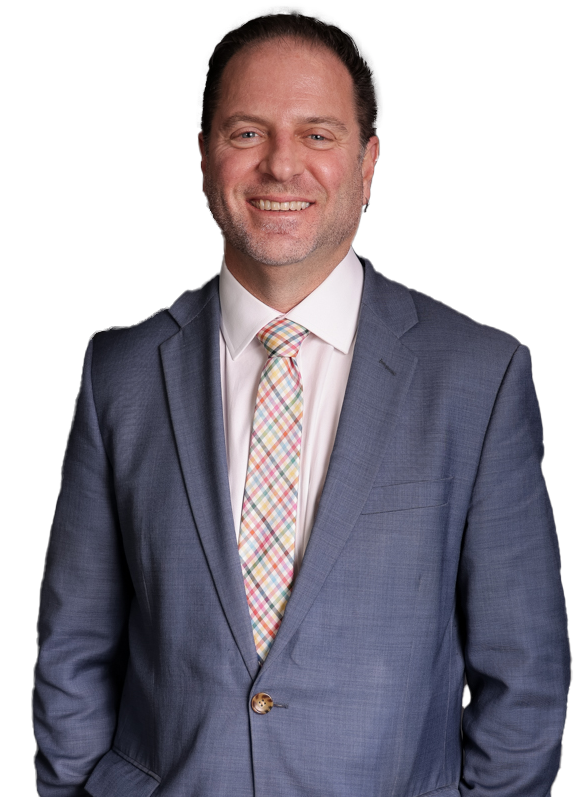
Questions & Answers
with Dean Aaron Lorenz
You’ve held several different roles at Ramapo, from faculty member to convener to dean and many others. How has your understanding of higher education evolved over the course of your career?
I do feel like I have seen every aspect of higher education in my nearly 30 years in academia. I’ve seen massive changes in many areas. The biggest change is access to information. When I was in graduate school, teaching courses and conducting research, it took many more affirmative steps to find information. For today’s college students, access to peer-reviewed research is available in mere seconds. It’s free, fast and on their devices. That ease of access means the lessons I myself learned in searching for information must be taught in other ways. The search process is important, and if it is streamlined, we have to find other ways for the students to learn about adversity, drawing connections, spotting interdisciplinarity and even the joy of research success.
Despite this and other changes, there are two things that haven’t changed over time: the core of why we’re here; and that the facts always triumph. No matter what role I play—faculty, convener, dean—my obligation lies with ensuring students have more questions than answers after their educational experience. That comes from presenting material, engaging students and facilitating discourse. As technology and pedagogical approaches change, that core will not.
Do you have any routines or rituals to help you stay grounded and centered on the work and leadership you need to provide as dean?
I wish I was better with daily meditation or learning to play a musical instrument. What really keeps me centered is remembering the work I do gets students to walk across that stage in May. That’s why I am here. I’m lucky my job allows me to get some “wins” every day. My favorites are when students thank me for helping advise them or guide them in applying for prestigious fellowships and graduate school. Besides that, music keeps me grounded. I listen to music in my office all day, and it reminds me there’s joy in the world and in the work.
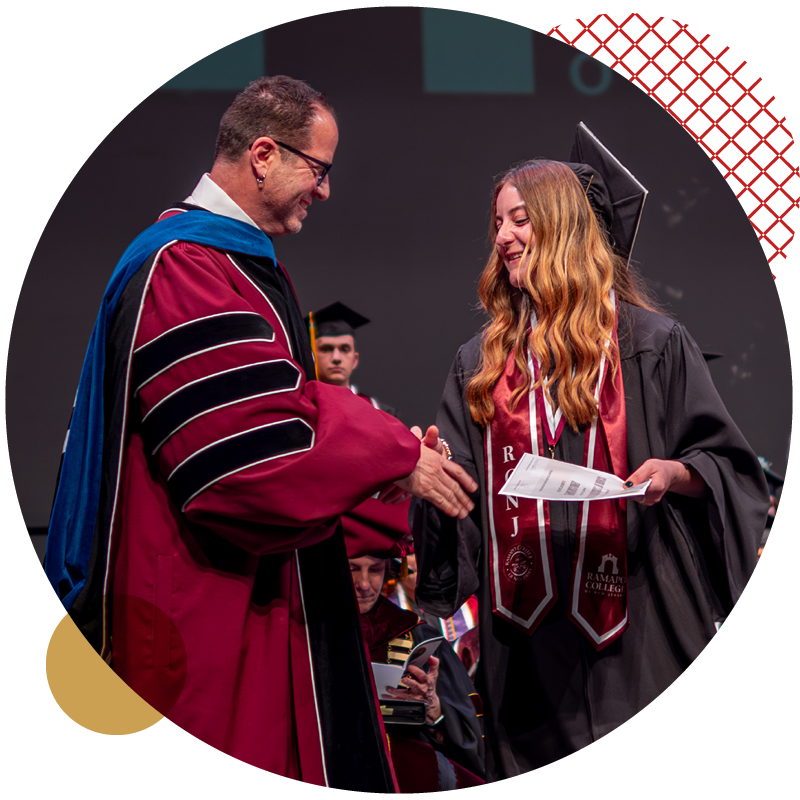
Lorenz congratulates a graduating student at the Academic Achievement Ceremony.
So, what kind of music would someone hear if they walked into your office?
Oh, come on, this is too much fun. I discovered Bob Marley when I was 13 and since then, there have only been a few days that I haven’t listened to at least one of his songs. Every day is a Marley day for me, so he’d definitely be playing in my office. You’d likely hear U2 as well. Their energy is infectious. I start every morning in my office with Langhorne Slim. His positivity gives me hope. Lastly, I’d say Frank Sinatra, Michael Franti and John Brown’s Body. This is a hard question!
What do you think is the greatest challenge recent college graduates face today? How is Ramapo addressing that challenge?
There’s a wonderful part of a speech that Dr. King delivered the night before his assassination. In it, he talks about how he is asked about what time he would choose if he could pick a time in history to live. He eloquently speaks about pondering being next to Socrates, and then next to Lincoln as he signs the Emancipation Proclamation. He gives a few other examples and then says that he chooses today. In this time. That’s always stuck with me, and I remember hearing the speech 40+ years ago. In this time. So that is a long way of me saying, I don’t think the challenges that our graduates face are any different than those before us, nor will they be different than those a generation from now. It might be a different set of facts, but the theory remains the same. The challenge for our graduates is to remind themselves daily they must find creative ways to contribute to society. Everyone I am surrounded by at Ramapo knows that to meet any challenge, we must stay true to our mission: providing students a foundation to be ethical change agents.
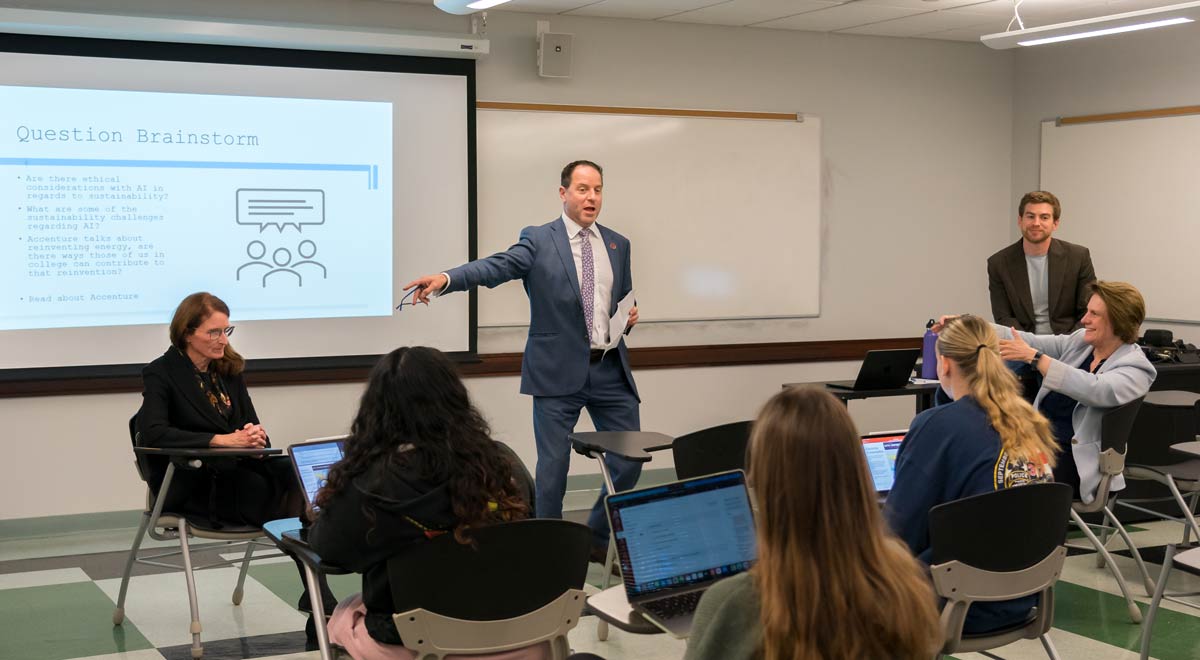
Lorenz moderates a discussion as part of the Presidential Speaker Series with guest Mary Legere.
Your oldest child is going through the college admissions process this year. What has that experience been like for you as a parent? Has it changed your perspective as a dean and academic?
Having two teenage boys has certainly changed my perspective on the college admissions process. It reminds me that my nearly 30 years in higher education mean nothing to them, as they seem to get all of their information about college from their friends. I keep offering to be a free resource but no takers! At that age, though, we rarely know what we want our future to hold. We may have ideas, and those may come to fruition. We may have no idea and find ourselves in spaces we never could have imagined. As a dean and as a parent, I have to make sure to listen to the young adult about who they want to be and not what they want to be. Sometimes I share mistakes I’ve made, but I do so in hopes our young folks will make their own independent decisions. I follow the John Lennon philosophy, “life is what happens when you’re busy making other plans.”
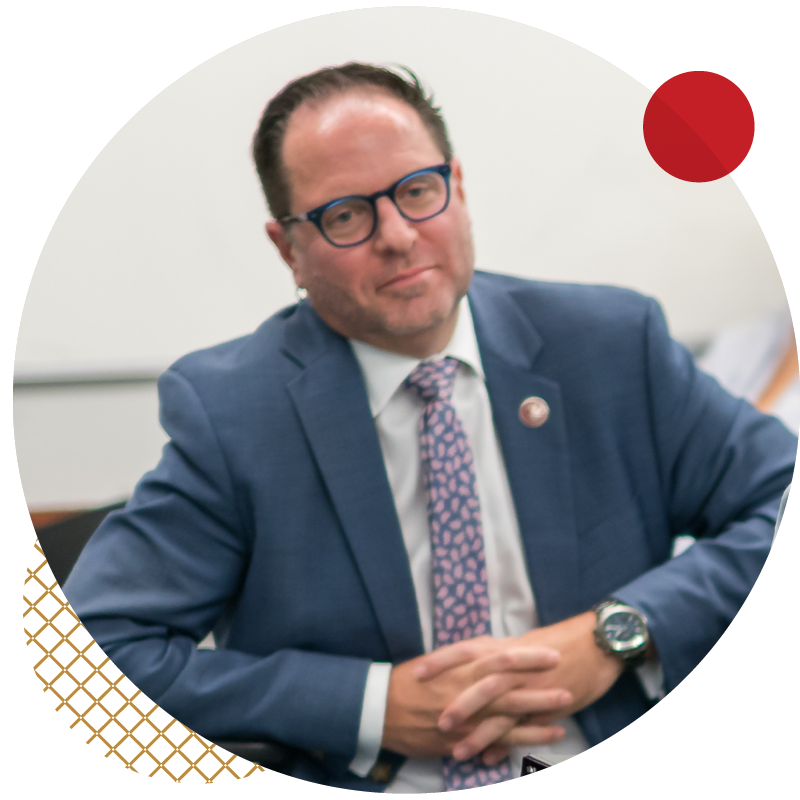
What keeps you up at night?
Not much. I fall asleep rather easily, often times from pure exhaustion. If I do wake up in the middle of the night, it’s because I realize that I forgot to send an email or complete a task. I try not to let anything keep me up. President Jebb has reminded me, this work is supposed to be fun. When we’re mission-centric and doing good work, it is fun.
Who are you when you aren’t at work?
This might be a question you should ask my wife and teenage boys. Who am I when I am not at work? Probably not much different. I get home, get out of my suit and put on a button down and sometimes a blazer—yes, my family makes fun of me for it. I’m still intellectually curious just like I am here. I usually relax for a bit and get back to emails. I’m in the helping profession, so I get real joy from working, even after a long day on campus. I’d like to think I’m funnier at home than I am on campus (and I do have an idea for research about faculty and stand-up comedians. I’ll leave that for another day).
Your newest book, “Law and Society” (Kendall Hunt Publishing), is a textbook for students who are studying law and society. Can you share what the focus is, and what was the genesis of it?
My latest book is a textbook that focuses on various philosophical and theoretical components of how law functions in society and how those theories practically play out. I’ve found the best textbooks provide a balance between theory and practice. Examples help, but not without a foundational theory as to why. Similarly, theory is necessary, but without examples it can be difficult to understand impact.
What is your research and writing process like?
Let me preface this by telling you that developing a writing process is very personal. It is hard to find the words, the time, the data and to always keep in mind the vision of the work. My experience in graduate school led me to do two things, and I think I did them well: plan; and give yourself a break. When I begin writing a book or article, I have a plan in place. What is the schedule that I must follow? Once I establish that and say I know that I must write every Tuesday, Wednesday and Sunday night, I don’t beat myself up for those rare Tuesdays that I can’t write. It’ll all be ok. The schedule has to have some forgiveness days in there.
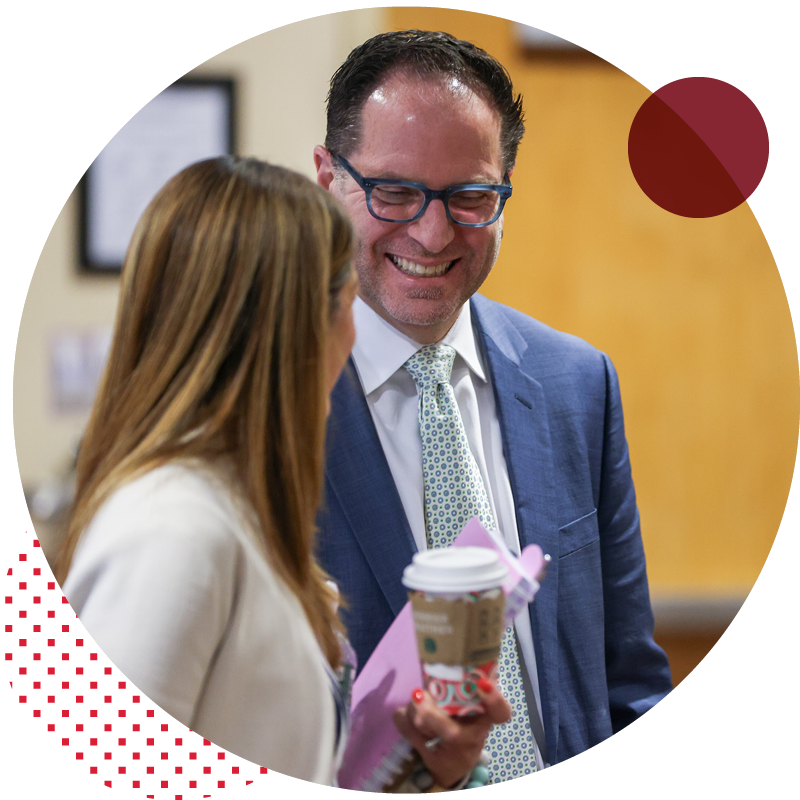
Name and describe one or two major initiatives/programs that you’ve led as dean of SSHS that you’re most proud of.
Come on, that is like asking me to pick my favorite kid! I’ll pick two. The Investigative Genetic Genealogy Center and the Teaching Assistant (TA) to Teacher program. IGG was the brainchild of Dr. David Gurney and has grown under the work and leadership of Cairenn Binder (and everyone in the IGG Center), so I can’t take credit for it. But I am proud to watch its growth and impact under my portfolio. What IGG has accomplished is simply remarkable. They have assisted in solving cold cases, missing person cases and wrongful convictions. Their most recent case resulted in two brothers in Wisconsin being released from prison after 24 years for a crime they did not commit. As for TA to Teacher, we’re filling the teacher shortage in New Jersey through creative means. There are thousands of teaching assistants and instructional aides in the classroom, and they’d love to become certified teachers. That is where Ramapo comes in. Under the leadership of Dr. Adam Fried, our assistant dean of teacher education and Dr. Julie Good, program director for our Master of Arts in Special Education, we have helped TA’s become certified teachers.
What are your hobbies and interests?
Unfortunately, I don’t make time for my hobbies as much as I should. My ideal week would be working and then getting to the beach. If I could surf and then sit in the sun and watch the waves crash, I’d be happy. Mix in some airbrushing—something I haven’t done in 20+ years —and that might be the perfect week for me.
